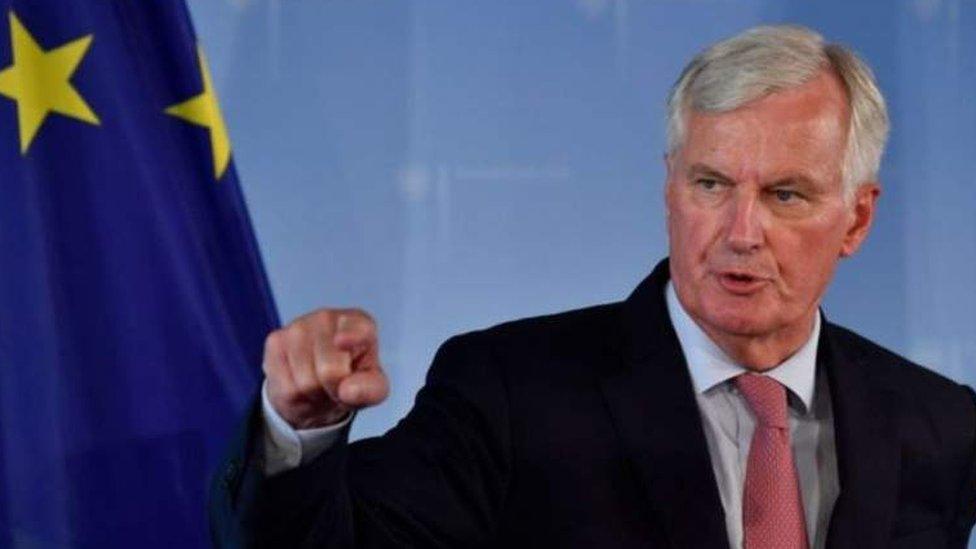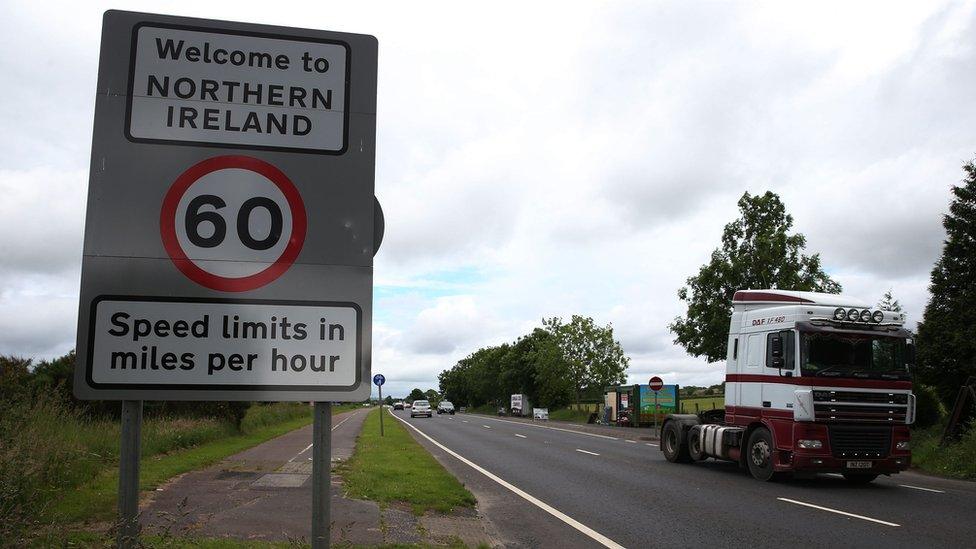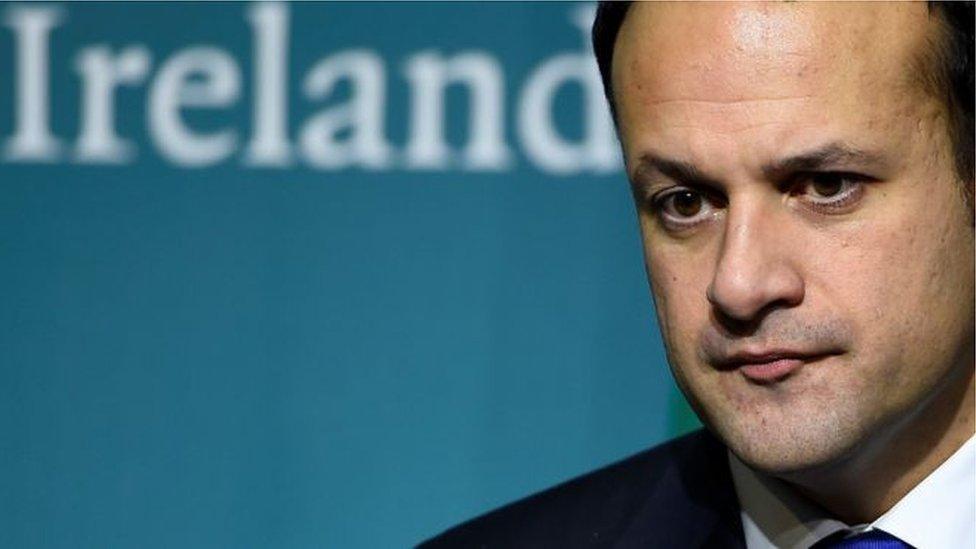Nothing new in Michel Barnier's latest backstop comments
- Published

Michel Barnier talked about the need to "de-dramatise" the backstop
The fact that the EU is prepared to amend or "improve" the language of the backstop is not news.
The Irish border has proved to be a major issue in Brexit talks.
EU chief Brexit negotiator Michel Barnier struck a conciliatory tone in July saying: "There will be a backstop, not necessarily our backstop, we can work, we can amend, we can improve."
In August, he put his words in writing, saying: "We are ready to improve the text of our proposal."
When he spoke to the Commons Brexit committee in September, he elaborated on those remarks.
"We are open to discussing other backstops, so we can discuss this text, we can make changes to it. We are open, but whatever happens, there has to be a backstop."
He also spoke about the need to "de-dramatise" the backstop saying that if there ever did have to be checks on goods moving across the Irish Sea, they could take place "at a number of different places" and "could take different forms".
A senior MEP also hinted that new language could be used to emphasise that the EU does not intend to undermine British sovereignty.
Danuta Hübner told the BBC "We could add some political commitments and show goodwill and good faith for this proposal."
She added that new language could reflect "the real intention" of the backstop.
In parallel to this, the Irish government has repeatedly said it is open to "improvements" so long as the outcome of avoiding a hard border is achieved.
'Unchanged'
But neither Mr Barnier or the Irish government have given any indication that their fundamental interpretation of the backstop is changing.

The border between Northern Ireland and the Republic has hundreds of crossing points
That was reiterated by the taoiseach (Irish prime minister) on Wednesday when he told the Dáil (Irish Parliament) that the backstop means "the rules of the customs union and the rules of the single market will continue to apply in Northern Ireland unless and until there is a new agreement that makes it unnecessary."
So even as Mr Barnier seeks to "de-dramatise" the backstop and present it as a series of dull technical arrangement, its essential character is unchanged.
And that is a problem for the prime minister because she has rejected it in the most emphatic terms, telling parliament in February: "No United Kingdom prime minister could ever agree to it.
"I will be making it crystal clear to President Juncker and others that we will never do so."
- Published19 September 2018

- Published19 September 2018

- Published30 December 2020
